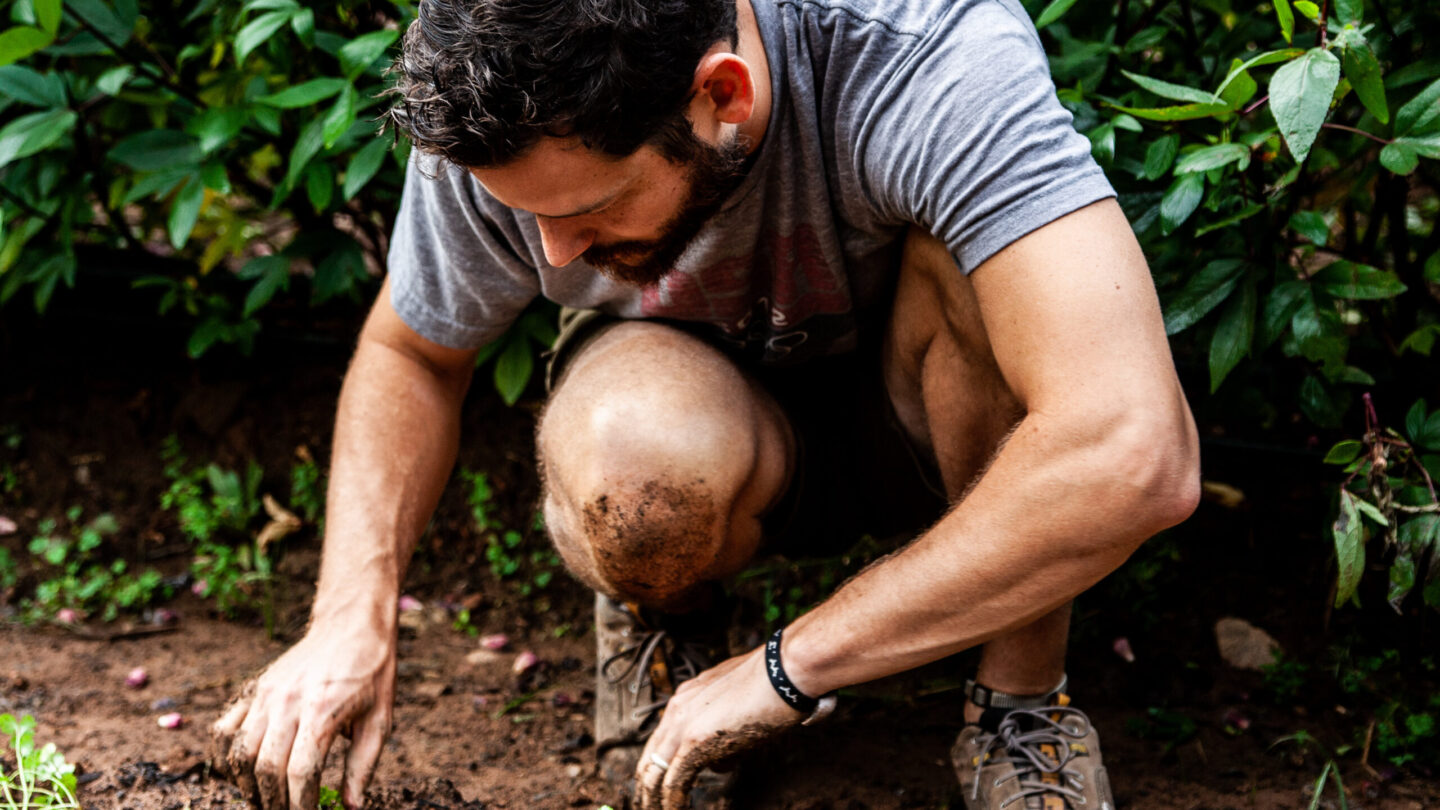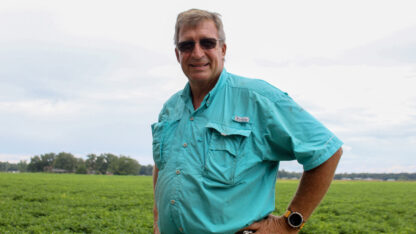Fresh Harvest provides local, organic food deliveries to the metro Atlanta area

Thanksgiving, the culmination of the traditional harvest season, brings to mind the produce we prepare and share and where it comes from.
It’s a subject close to the heart of Zac Harrison, the founder of Fresh Harvest, a Clarkston-based home delivery program connecting households with local produce, meat, dairy products, and artisanal goods from farmers close to their communities.
Zac Harrison joined “City Lights” host Lois Reitzes via Zoom to share his organization’s origin story and offerings.
Interview highlights follow below.
On the positive impacts of favoring local produce:
“It’s easy to just see a carrot as this thing that shows up on your plate, and that’s all it is. I mean, obviously, there’s so much more behind that. There’s the growing practices; there’s the caretaking of the land. There’s all the people involved in creating this sustenance that we’ve been, obviously, as humans, living off of for all of time, but just it’s been manufactured now in so many different ways we don’t feel connected to it anymore. So the first, and I think, most impactful thing is for the eater – us, you and me – to really realize that there are awesome people on the other side of it,” Harrison said.
“I think it was Michael Pollan who said that ‘We vote three times a day,’ and I do believe that,” said Harrison. “And then there’s just the ecological impact. The food is not traveling as far. You have all the different efficiencies and less harmful practices that then are supported by eating food that’s from right down the road. One thing we talk about a lot at Fresh Harvest is 80% of the goods that are in our baskets… comes from an average of 70 miles away. So that’s a trip to Dahlonega, as opposed to driving across the country in a big old truck.”
On the challenge of valuing food honestly while keeping costs affordable:
“I think the first thing is just understanding the value of the food in the first place. So… why would a bunch of carrots cost $1.50 versus $3, depending on where it’s coming from? And so much of that is in relation to scale, and a lot of the growing practices take place in order to get scale up to where it actually makes things that much cheaper. Say the $1.50 carrot versus the $3 one from the farmer’s market; a lot of those practices are ones that devalue either the planet or the end-consumed good,” Harrison explained.
“But then also, I think too, a huge part of that is making sure that we add as many of the conveniences as possible so that the costs are as approachable as possible for people in need of that food, and so it’s working with farmers who understand that, and who are bought into having the most efficient practices they can. And then us… making sure we can get that to people for an affordable price,” said Harrison. “We’re not trying to be a luxury product that’s just more expensive for the sake of being more expensive. We’re trying to be able to compete with the approachability of products at the grocery stores around us.”
A mutually supportive relationship between Clarkston’s refugee community and Fresh Harvest:
“When we were first here, there weren’t many people who worked at Fresh Harvest. We were much smaller. But then, as we’ve been able to grow our business, we’ve been able to hire our friends from all over the world,” Harrison said. “It really did all start from hiring some people that were my friends in the apartment complex we lived in, and we’ve just seen that grow. They talked to their friends as we needed more positions, and that’s really become a key value for us. One thing we always talk about at some of our bigger planning meetings is, ‘Are we achieving our values?’ And one of our main values is the idea of sharing a table, and the more diverse, the more resilient, I believe.”
“A large part of our staff currently [come] from Burma, so several of them lived in refugee camps in Thailand for many years, and they have come over here and now are citizens. We have folks on our team from Afghanistan, from Congo; where else? Really, so many different places… That’s something that’s really interesting about Clarkston is that it’s a refugee resettlement city. You have new people coming in from different parts of the world at different times and different years, based on the hardships and struggles and oppression that’s going on in the world at that time. Clarkson is kind of a mirror to that. You get to really see that and meet people who have been through a lot of different things and are just so resilient and motivated and beautiful people.”
More information about Fresh Harvest, their food delivery subscription service, and other opportunities can be found at https://freshharvest.com/.







